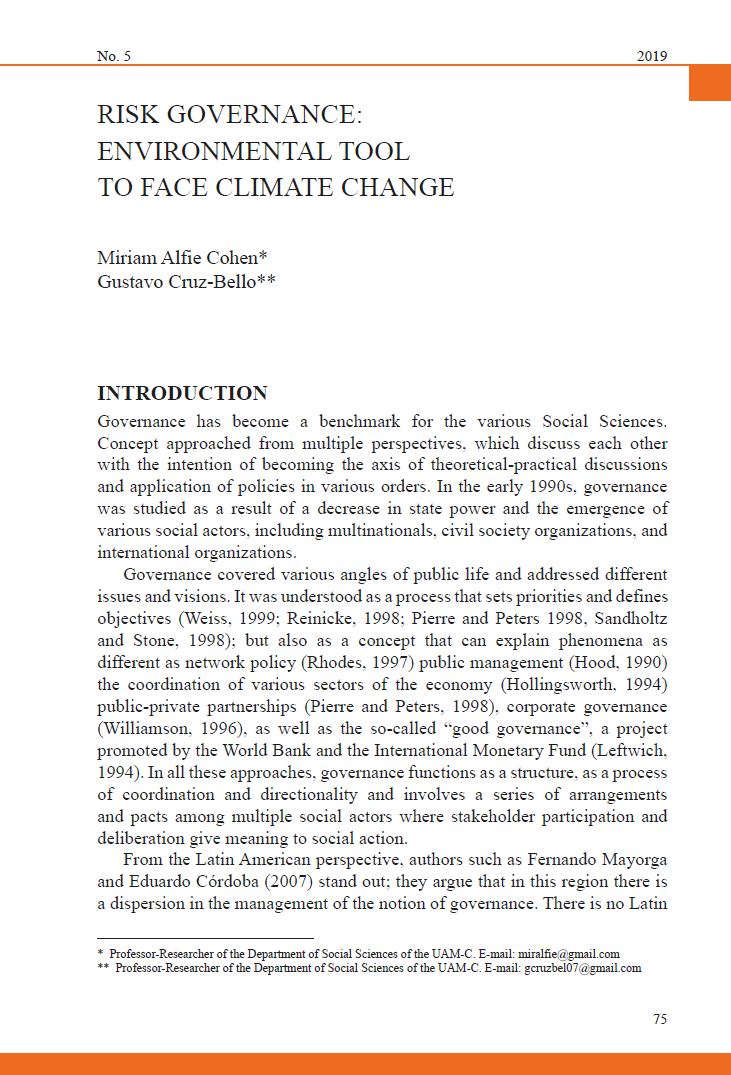Risk governance: Environmental tool to face climate change
Abstract
This article analyzes how risk governance can be a tool against hydro-meteorological disasters caused by Climate Change (CC) in Mexico. We show how, from various participatory methodologies, we addressed decision-making where multiple social actors intervene. Our analysis focuses on social interactions, the results reflected in extensive deliberations and community actions that are suggested to contain climate variability in the face of cyclones, floods, and droughts in six communities in the country. These approaches will lead us to deepen the importance of social participation and deliberation in the decision-making on a territory. The central key of this paper is to highlight risk governance as a process of making and elaboration of policies, where the emphasis is on the deliberation and agreements made by a multiplicity of actors, as well as the process of construction and decisionmaking over their territory. The first part of the article deals with theoretical aspects of governance and the use that various actors have made of it. Subsequently, we will address the concept of risk governance and analyze from this the connections between territory and environment. Last but not least, we will point out how, based on concrete and specific methodologies, the problems of risk and vulnerability to climate change have been developed and addressed in six communities in Mexico and how risk governance can be an important tool in the prevention of vulnerability to CC that occurs in various territories of the country.
Downloads
Published
How to Cite
Issue
Section
License

This work is licensed under a Creative Commons Attribution-NonCommercial-ShareAlike 4.0 International License.




